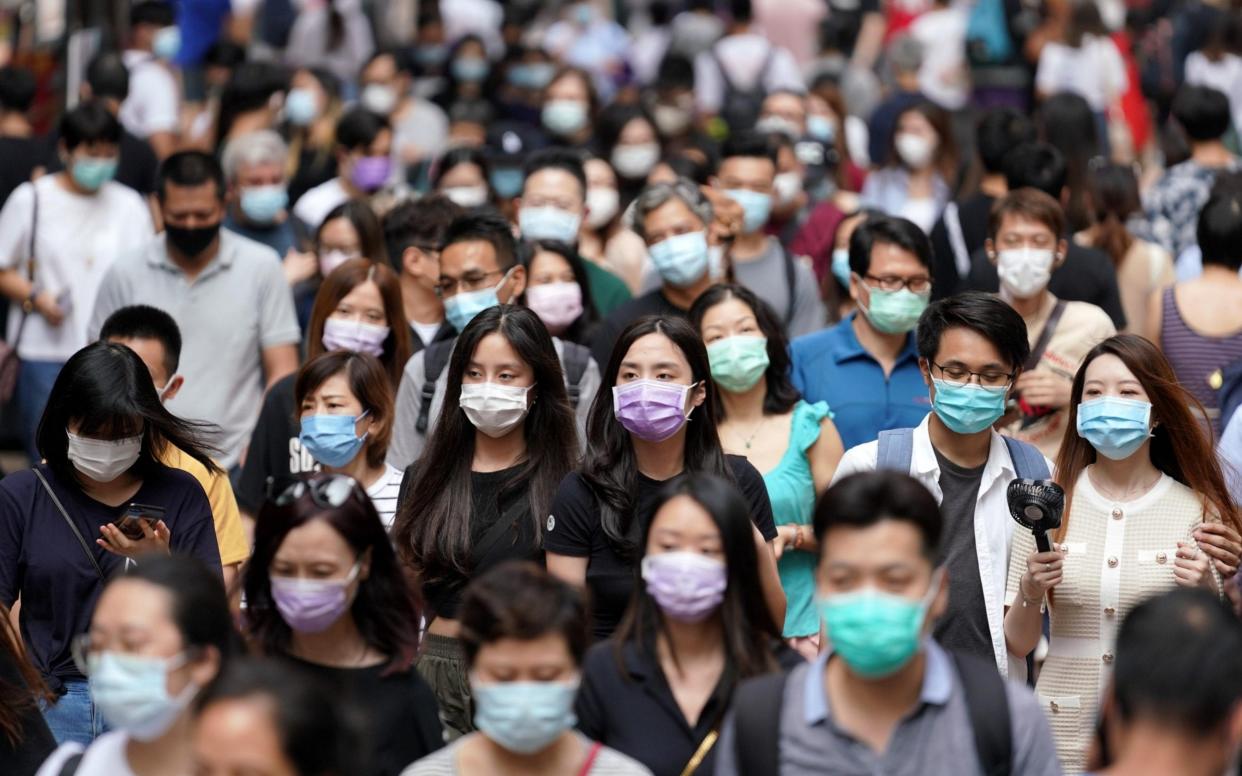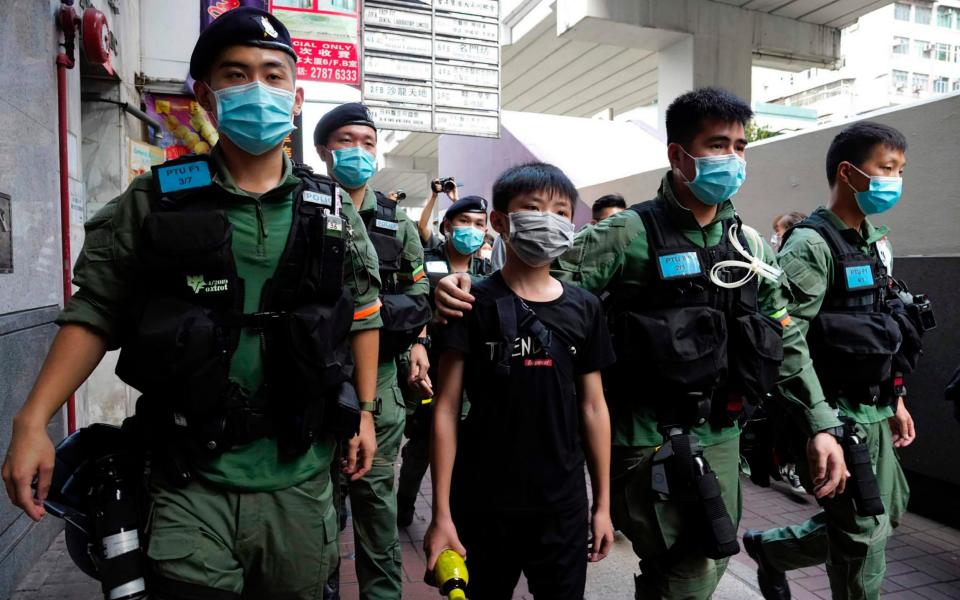Hong Kong launches mass virus test amid calls for boycott

Hong Kong pro-democracy activists and healthcare workers have called for a boycott of a controversial coronavirus mass testing plan which is set to be rolled out in city laboratories on Tuesday.
Some half a million residents out of the city’s 7.5 million population have already volunteered for the test, which will be conducted with the help of health officials from the Chinese mainland, but many remain hesitant about signing up for the scheme, wary of the government’s motives.
The public health initiative, billed as an attempt to stamp out a third wave of Covid-19 infections that have swept this summer through the densely populated Asian financial hub, has become entwined in the divisive politics that have ripped the city apart over the past year.
Public distrust and anger towards the local authorities and Beijing remains high after the sudden introduction of an ambiguous national security law aimed to criminalise dissent and stamp out months of pro-democracy protests that sometimes turned violent.
Tensions spiked again on Monday night, on the sensitive one-year anniversary of the police storming the Prince Edward metro station to make arrests during the protests.

The involvement of doctors and companies from the mainland in the new health scheme has spurred rumour mills and fears of the encroachment of Beijing’s surveillance state.
On Twitter, Joshua Wong, one of the city’s most prominent pro-democracy activists, questioned the scientific basis of the tests and whether China was trying to collect sensitive health data, and urged more effective anti-virus measures such as sealing the border.
Many local healthcare experts have also raised concerns about the efficacy of the programme, particularly when it is being introduced at a time when new daily infections have fallen substantially from triple digits to low double digits.
Arisina Ma, head of the Hong Kong Public Doctors Association, said relying on the scheme as an alternative to border closures, social restrictions and targeted screening was “worrisome” and would not work alone as a virus control measure.
“Many hospital workers and public health experts think that whole population screening is not cost-effective,” she said. “There should be targeted screening - those with symptoms, those from high prevalence countries, those who have contact with confirmed cases or screen vulnerable groups like the elderly.”
Ivan Law, vice-president of the Hospital Authorities Employees Alliance, which has 20,000 members, said there was a risk of “false positive” cases.
“The people who are going to take the samples are medical students, nurses or even physiotherapists. How much training do they have when they are just required to watch a video and perform the test?”
Some democracy activists have suggested that the tests will be used to collect and abuse people's DNA samples.
Although the authorities have dismissed this as a conspiracy theory, the fear remains.
“I don’t know where my DNA data will be leaked to. I don’t trust the authorities’ security on our personal data,” said Leung, 28, a logistics worker.


